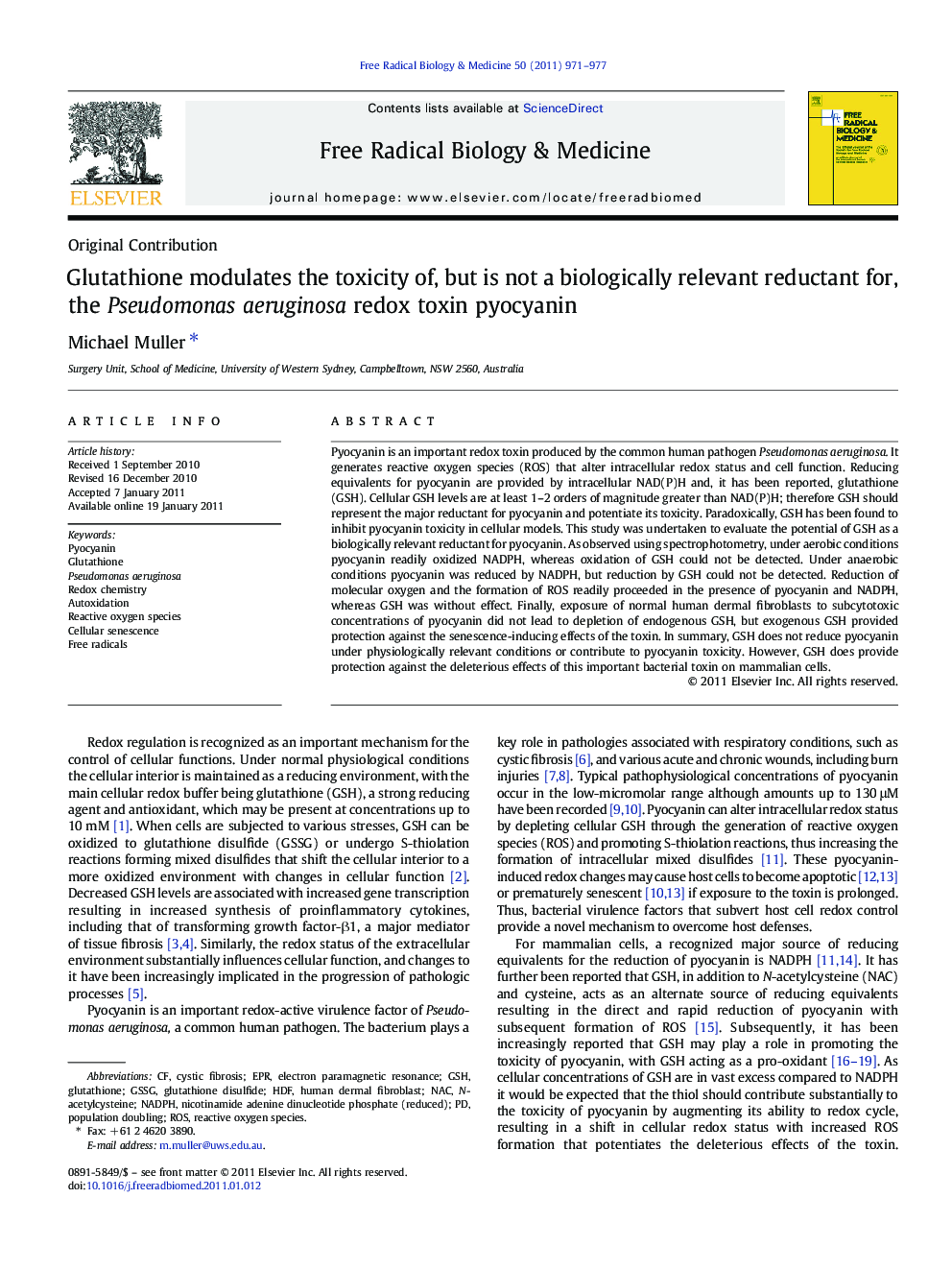| کد مقاله | کد نشریه | سال انتشار | مقاله انگلیسی | نسخه تمام متن |
|---|---|---|---|---|
| 1909492 | 1046727 | 2011 | 7 صفحه PDF | دانلود رایگان |

Pyocyanin is an important redox toxin produced by the common human pathogen Pseudomonas aeruginosa. It generates reactive oxygen species (ROS) that alter intracellular redox status and cell function. Reducing equivalents for pyocyanin are provided by intracellular NAD(P)H and, it has been reported, glutathione (GSH). Cellular GSH levels are at least 1–2 orders of magnitude greater than NAD(P)H; therefore GSH should represent the major reductant for pyocyanin and potentiate its toxicity. Paradoxically, GSH has been found to inhibit pyocyanin toxicity in cellular models. This study was undertaken to evaluate the potential of GSH as a biologically relevant reductant for pyocyanin. As observed using spectrophotometry, under aerobic conditions pyocyanin readily oxidized NADPH, whereas oxidation of GSH could not be detected. Under anaerobic conditions pyocyanin was reduced by NADPH, but reduction by GSH could not be detected. Reduction of molecular oxygen and the formation of ROS readily proceeded in the presence of pyocyanin and NADPH, whereas GSH was without effect. Finally, exposure of normal human dermal fibroblasts to subcytotoxic concentrations of pyocyanin did not lead to depletion of endogenous GSH, but exogenous GSH provided protection against the senescence-inducing effects of the toxin. In summary, GSH does not reduce pyocyanin under physiologically relevant conditions or contribute to pyocyanin toxicity. However, GSH does provide protection against the deleterious effects of this important bacterial toxin on mammalian cells.
Journal: Free Radical Biology and Medicine - Volume 50, Issue 8, 15 April 2011, Pages 971–977